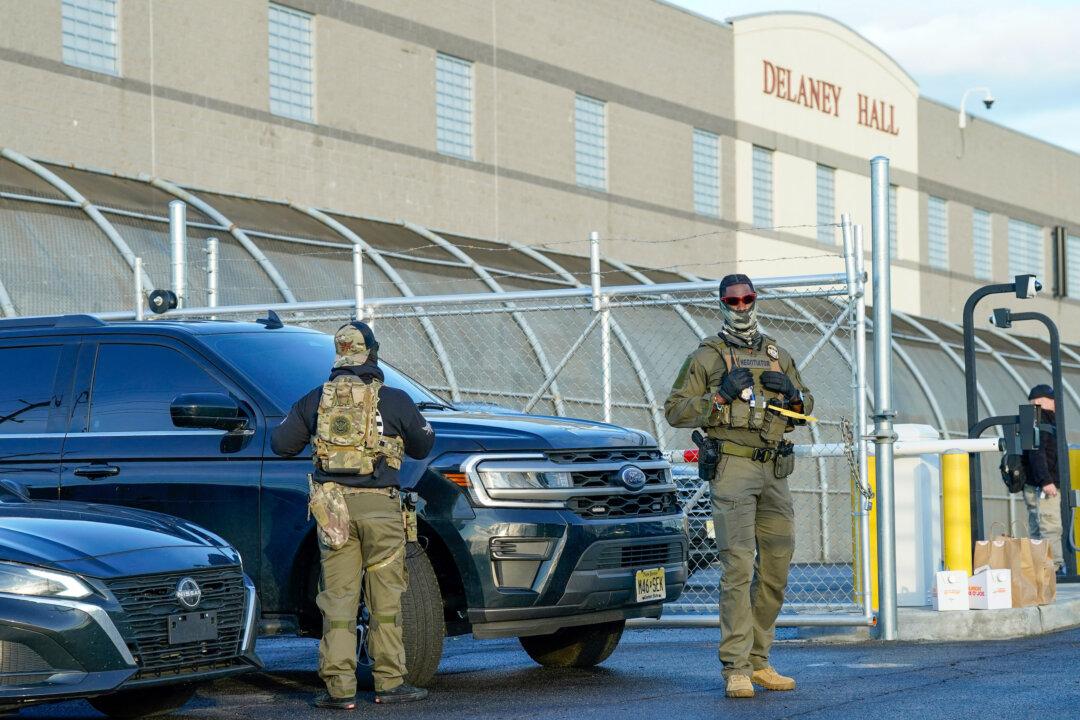A conservative group is suing the U.S. Department of Justice for refusing to explain why it won’t enforce a federal law forbidding what the group called “the recent intimidatory protests carried out by radical abortion supporters” outside the homes of conservative Supreme Court justices in connection with the reversal of Roe v. Wade earlier this year.
Raucous protests began at the homes of the six right-leaning justices in Maryland and Virginia in the wake of the unprecedented May 2 leak of a draft opinion foreshadowing the court’s June 24 decision to overturn the 1973 Roe v. Wade abortion precedent, and escalated after the ruling itself was issued.





